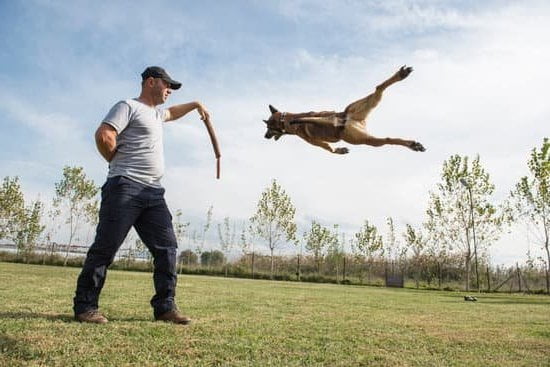Is Crate Training Bad For Dogs
?
There is a lot of debate surrounding the topic of crate training dogs. Some people swear by it, while others believe that it is cruel and can actually be harmful to dogs. So, what is the truth? Is crate training bad for dogs?
The answer to this question is a little bit complicated. The truth is that crate training can be bad for dogs in certain circumstances. For example, if a dog is crated for too long or if they are not introduced to the crate properly, they may become anxious or stressed. Additionally, if a dog is not properly exercised, they may become restless and destructive in their crate.
However, when used correctly, crate training can be a very effective tool for house training dogs and can help to keep dogs safe and secure. Crate training can also be helpful for dogs who suffer from separation anxiety.
If you are thinking about crate training your dog, it is important to do your research and to make sure that you are using the crate in a way that is safe and beneficial for your dog.
Dog Crate Trained
Dogs
There are a number of reasons why you might want to crate train your dog. Perhaps you need to transport them in a car and don’t want them to roam around the vehicle; maybe you have a new puppy and don’t want them to soil your house; or maybe you just want your dog to have a designated place to sleep and relax in.
Whatever the reason, Crate training your dog can be a very beneficial thing. Dogs are naturally den animals, and so they feel safe and secure in a crate. It can be a great place for them to sleep, especially if they’re not used to being alone in a room. It can also help with housebreaking a new puppy.
When crate training your dog, you should always start out slowly. Put the crate in a room where the dog spends a lot of time, and put some of their favorite toys and treats in there. Let them explore the crate on their own, and don’t force them to go in if they don’t want to. Once they’re comfortable with the crate, you can start using it as a place to put them when you’re not able to watch them.
If your dog starts to whine or bark in the crate, don’t let them out until they stop. This may take a little bit of time, but eventually they’ll learn that whining and barking won’t get them out of the crate. If your dog is having a lot of trouble adjusting to the crate, you may want to consult with a professional dog trainer.
How To House Train A Dog Without A Crate
There are a few different ways to house train a dog without a crate. One way is to create a designated potty area outdoors where your dog can relieve himself. You can also use positive reinforcement to train your dog to go to the bathroom in a specific spot inside your home.
If you decide to create a designated potty area outdoors, you will need to be consistent in taking your dog outside to relieve himself. You may also want to consider using a potty training pad or artificial turf in the designated area to make cleanup easier. If you are using a potty training pad, be sure to place it in a spot where your dog is unlikely to pee or poop on anything else.
If you are using positive reinforcement to train your dog to go to the bathroom in a specific spot inside your home, you will need to be patient and consistent. Some dogs may take a little longer than others to learn where to go. Be sure to reward your dog with treats and praise when he goes to the bathroom in the correct spot.
How To Train Your Dog To Sleep In A Crate
Dogs are den animals and like to have their own space. A crate is the perfect way to give your dog their own space and to teach them to sleep in a crate.
The first step is to get your dog used to the crate. Start by putting the crate in a place where your dog spends a lot of time, such as the living room. Put a blanket or a toy inside the crate to make it more comfortable.
Next, start feeding your dog their meals inside the crate. Once your dog is comfortable eating inside the crate, start closing the door for a few minutes at a time. Gradually increase the amount of time the door is closed.
Once your dog is comfortable eating and sleeping in the crate, you can start using it to transport your dog. Put your dog in the crate and take them for a ride in the car.
The final step is to use the crate to train your dog to stay in their bed. Put your dog in the crate and close the door. If your dog gets up, put them back in the crate. Once your dog is comfortable staying in the crate, you can start leaving them in the crate for longer periods of time.
How To Train Dog To Not Cry In Crate
Crate training can be a great way to potty train your dog and help them feel secure, but it can be tough to get them to stop crying in their crate. Here are a few tips to help your dog get used to their crate and learn not to cry.
1. Start by putting your dog’s crate in a room where they spend a lot of time, like the living room or kitchen. This will help them get comfortable with the crate and not see it as a place of punishment.
2. Make sure the crate is big enough for your dog to stand up, turn around, and lay down in comfortably.
3. Put a few soft toys in the crate and some of your dog’s favorite treats.
4. Start by putting your dog in the crate for a few minutes at a time and gradually increase the time they spend in there.
5. Reward your dog when they stay in the crate without crying. This can be with treats, petting, or verbal praise.
6. If your dog starts to cry in the crate, calmly say “no” and put them back out. Don’t give them any attention when they’re crying, as this will only reinforce the behavior.
With patience and perseverance, you can train your dog to not cry in their crate. By following these tips, you can help your dog feel comfortable and safe in their crate and help make crate training a breeze.
“

Welcome to the blog! I am a professional dog trainer and have been working with dogs for many years. In this blog, I will be discussing various topics related to dog training, including tips, tricks, and advice. I hope you find this information helpful and informative. Thanks for reading!





